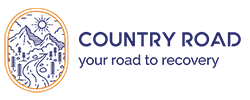Early sobriety isn’t all rainbows and butterflies. There are moments where you feel like you’re doing everything “right” but your emotions and thoughts still rollercoaster up and down. This is totally normal. Detoxing from drugs and alcohol is just the start. Now comes the real work. And if you’ve found yourself asking, “Was it really that bad? Do I even belong in recovery? What if I’m just overreacting?” you’re not alone.
The Head Games Are Real: Why Self-Doubt Hits Hard in Early Sobriety
Addiction warps your relationships with reality. Literally. Drug and alcohol use produces physical changes in the brain that lead to distorted thinking patterns and affects emotional regulation. When you get off the substances, your brain goes through a period of healing and your thinking can feel a bit wonky. You may find yourself doubting that you even had a problem to begin with or comparing your bottom to someone else. According to one Country Road client, “I hadn’t lost a job yet. I hadn’t been homeless. So I figured I wasn’t bad enough.”
But the truth of the matter is that if you’re in pain, you’re allowed to heal. There’s no checklist or origin story you need to qualify for recovery. You just need willingness.
Going Through the Motions? That’s Still Progress.
In the beginning stages of recovery you might not feel anything magical right away. Maybe you’re just showing up. Taking suggestions. And doing the next right thing.
That’s huge. That is progress.
It’s okay if you’re not fully bought in yet. You don’t have to believe in recovery 100% to benefit from it. Sometimes, progress looks like simply sticking around long enough for your heart to catch up to your actions.
Anxiety in Recovery Is Common—And Survivable
Remember when I told you that your brain is healing as you get sober and your thinking can get a little wonky? Well your emotions can also jump around. Social anxiety is a pretty common thing for people in early sobriety to experience.
After years of numbing, the idea of walking into a group of strangers, making small talk, or (God forbid) being yourself can feel impossible. You’re essentially learning how to socialize sober. But that’s the beauty of recovery groups. Everyone else went through the same thing so they get it. There’s no judgement.
“I’d awkwardly stand near a group, trying to join the conversation. I didn’t know what to say. But they let me hang around. Eventually, I felt like I belonged.”
Being a part of a community means continuing to show up. That’s how connection is built. Slowly. Awkwardly. Honestly.
Repetition Builds Trust—Especially With Yourself
Consistency in early recovery can feel boring. Calling your parents at the same time every week? Going to the same meeting? Making the same bed? It might not feel like transformation—but it is.
“They told me to call my parents every Sunday at 3pm—not to ask for anything, just to be their son again. At first, it was awkward. Now we talk for hours.”
Recovery isn’t about dramatic changes. It’s about quiet, repeated acts of integrity. That’s how trust is rebuilt—not just with family, but with yourself.
The Joy of Stability
When you’re deep in the chaos of addiction, stability sounds dull. But when you’ve lived without it, you start to see routine for what it really is: freedom.
You don’t need a wild, busy life to feel fulfilled. Quite the opposite. A lot of folks find the quiet, ordinary moments to be the most satisfying. Cooking a meal, laughing with friends, getting a good night's sleep—these experiences are the thread that weave a life together and prove you’ve made it further than you ever thought possible.
You’re Already Doing the Hard Part
You’re questioning. You’re curious. You’re considering that maybe, just maybe, there’s a different way to live. That’s courage.
So if you’re feeling awkward, doubtful, or messy in early sobriety, it’s all good. You’re not alone. You’re doing the work. And if you ever need a little encouragement, we’re always here to support you along the way.


